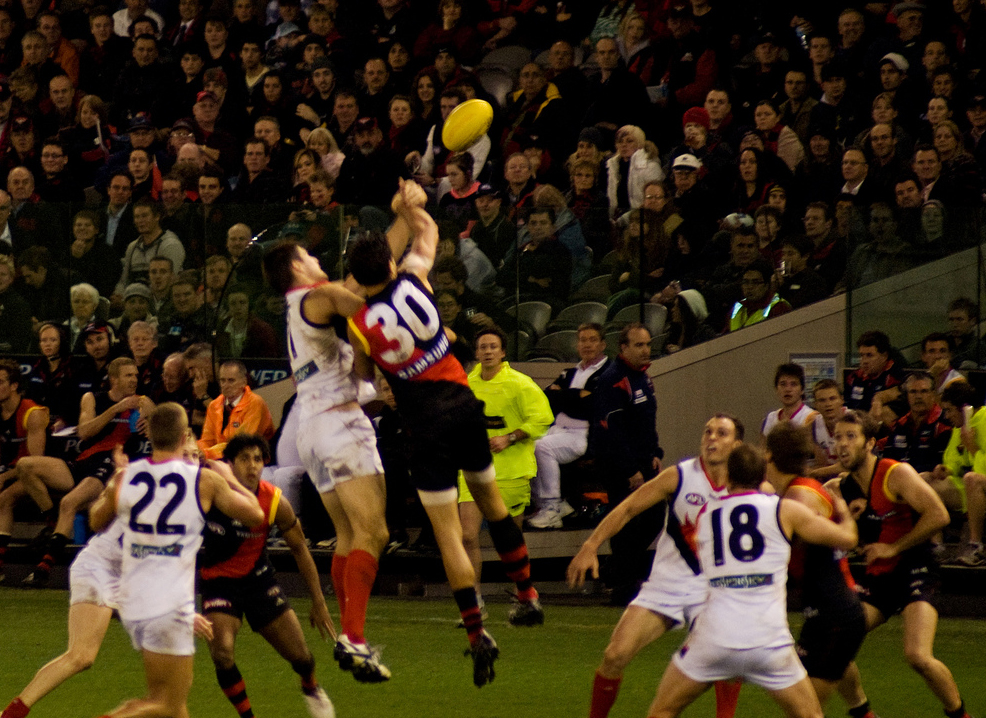Melbourne AFL club climbs ladder with IT

Communications technology has contributed to Melbourne Football Club's ascent of the AFL ladder after taking the wooden spoon in 2009, the club's IT manager Richard Arnott has suggested. He believes that a new unified communications system has improved the operational efficiency of the football department, leading to improved on-field performance.

Melbourne Football Club's IT manager has suggested that IT improvements in the club improved the team's on-field performance. (Patrick Ryder image by AndyeMcee, CC BY-SA 2.0)
"This year's been seen as a breakout year" in terms of bringing the club's capabilities up to the level of the rest of the competition, said chief executive officer (CEO) Cameron Schwab.
This has been achieved in part by establishing strategic partnerships, including one that saw ShoreTel supplying the club with a modern unified communications system and becoming a sponsor.
The Demons' communications are complicated by the fact that half of the organisation is based at the Melbourne Cricket Ground (MCG) and the rest at AAMI Park.
Arnott said the ShoreTel system made the football department's recent move from the Junction Oval to AAMI Park smoother. Specialists had to be brought in to make even minor changes to the old phone system, but ShoreTel's product is "extremely usable", he said, and has reduced his own workload.
Around 40 handsets were installed at each location, with a single voicemail server located at the MCG. The display of presence information makes life easier for those responsible for screening calls to certain members of the organisation.
The club originally thought it would only need the basic facilities offered by the system, but now understands how the advanced features could be used, said Arnott, adding that people around the club have been asking for additional features.
One thing that's definitely on the agenda is customer relationship management (CRM) integration so that incoming calls can be matched against the club's database, but that project won't proceed until Melbourne has implemented a new CRM system.
"We're just getting by" with the old system, Arnott said, and the club is preparing to choose between the system operated by the AFL, and an in-house implementation of Microsoft Dynamics.
According to Arnott, the ShoreTel system was selected on its merits and the sponsorship agreement was a bonus. Alternative systems were considered, but LG's offering was too basic and while Cisco could match ShoreTel's product it would have cost the club twice as much.
A ShoreTel official was reluctant to state the normal price of the system supplied to the club, only that it would not be more than around $80,000.
Arnott also mentioned that Melbourne is investigating the use of mobile devices to allow players to record their performances and other related information while they are still at the gym, training track or other facilities rather than having to visit the computer lab to enter the data.
For those that don't follow the AFL, Melbourne finished the home and away season in 12th place, missing out on a finals berth by 10 points.